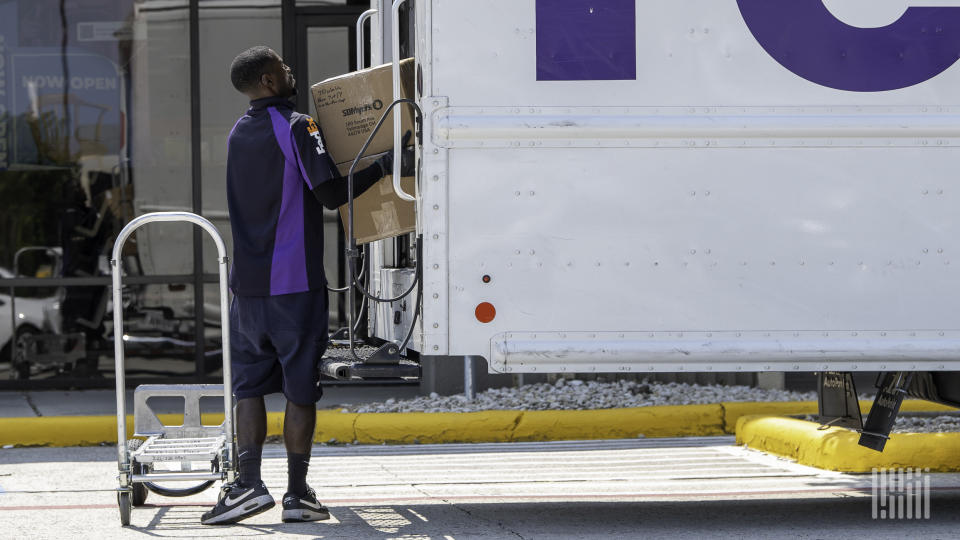Descartes study: Retailers’ sustainable home delivery efforts lacking

A global study of consumer preferences relating to sustainability found that only 43% of consumers felt retailers were doing a good job of using sustainable delivery practices. Over 60%, however, indicated in the study published late Wednesday by Descartes Systems Group Inc. that they were very interested in environmentally friendly delivery methods. Additionally, 59% said they are willing to act if they’re not satisfied with retailers’ sustainable delivery efforts.
The second annual study of 8,000 consumers across nine European countries, Canada and the United States provides retailers and logistics organizations with critical insights into the importance of sustainability in consumer purchase and delivery decisions and how perspectives vary by age and geography, Descartes said.
“Compared to our 2022 study, consumers are much more interested in the environmental delivery practices of retailers. They’re influenced by these factors when making purchasing decisions and willing to take eco-friendly home delivery options, which are often also lower cost delivery methods for retailers,” said Chris Jones, EVP, industry and services at Descartes. “Retailers need to heed these important trends as they provide more ways to differentiate, grow revenue, create greater customer loyalty and reduce delivery costs.”
The study analyzes consumer sentiment around the sustainability of retailers’ delivery operations, how this is impacting purchasing decisions, how consumers evaluate retailer efforts in sustainable delivery, which goods are most impacted by sustainable delivery performance and how consumers want to receive goods.
In a phone interview, Jones said that consumers using home deliveries are just as concerned about the environment as they are about convenience. What retailers need to do is present delivery options that promote their sustainability, he said.
What many retailers don’t realize is that many eco-friendly options are actually low-cost as well, Jones said. Retailers often treat every customer like a “monolith,” presenting delivery options based on price rather than environmental stewardship, he said.
Retailers “have this backward” when they perceive that eco-friendly solutions are actually more expensive, Jones said.
To get a sense of how strongly consumers felt about the environmental impact of different purchases, the survey asked if they were willing to buy online at a slightly higher price and pick goods up versus buying at a lower price and having goods delivered if they thought it would help the environment. Groceries were at the top of the list for higher price, purchase and pickup with 58%, followed by clothing and footwear at
51%. They were both up 6% from 2022.
Consumers are also willing to buy more from companies that measurably demonstrate their supply chain is more sustainable than the competition. The top two purchase categories saw increases in this area year on year, with clothing and footwear increasing by 5% to 44%. U.S. respondents again showed
the greatest interest in buying more from grocers who have superior sustainable performance.
The number of respondents who said they weren’t interested at all in the sustainability
performance of companies dropped by 4% to 9% in 2023 versus 2022.
Asked if delivery convenience or the environmental impact of a delivery was more important, convenience won out with 40% indicating convenience was slightly to most important versus 23% indicating environmental impact was slightly to most important. However, a significant percentage of respondents said both are equally important, with a wide range of responses based on geography.
The post Descartes study: Retailers’ sustainable home delivery efforts lacking appeared first on FreightWaves.
